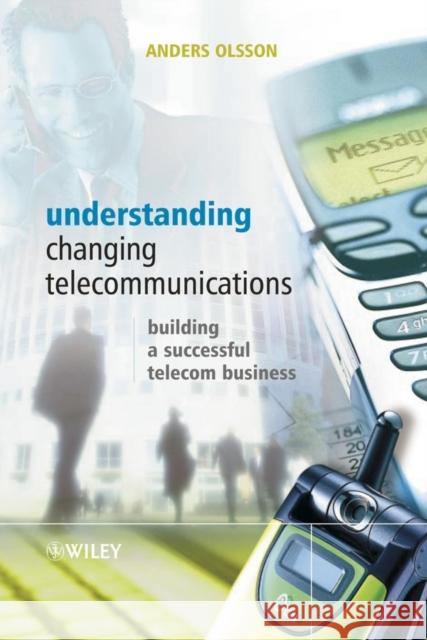Understanding Changing Telecommunication » książka
Understanding Changing Telecommunication
ISBN-13: 9780470868515 / Angielski / Twarda / 2004 / 542 str.
The field of telecommunications is becoming ever more complex. In order to manage the new Telecom industry it is necessary not only to understand its 3 main components, namely the end users, the technology and networks, and the business aspects, but also their vital inter-relationships.
Complexity leads to uncertainty, and one effect of uncertainty is for people to underestimate the complexity of the business and the technology. This book takes a holistic approach to the subject and can be used as a tool for decreasing this uncertainty. During 2000 many operators paid extremely high sums of money for 3G licenses in a number of European countries, supposing a potential corresponding and balancing revenue from mobile services in the new frequency band. Obviously today the licenses are questionable. Consequently, suppliers and operators were forced to reduce their international work force.
What are the underlying reasons? Since the true rate and level of development was hardly foreseen by anyone, the picture is complex, including factors such as psychology and belief in a new economy. It is immediately clear that the end user impact has been severely under-estimated. It is also clear that the expected development has and is happening, with more speed than expected, and continues to be complemented with solutions such as wireless LANs.
This book treats the paradigm shift from a number of angles: user needs and demands, deregulation of telecom and the convergence between telecommunications, data communications and the media industry, the service plan, service implementation, QoS, and Security. Understanding Changing Telecommunications focuses on the overall principles and context of the new telecommunications world rather than on high-level technical descriptions in order to aid the understanding and development of the next generation of telecom networks. e.g. multimedia over IP and 3G.
- Discusses the development of telecommunications up until 2005
- Provides a holistic view of the world of telecommunications
- Covers three main areas: End-users, Technologies and Networks, and Telecom Business, and their vital inter-relationships
- Offers support and advice for those needing to implement business plans











